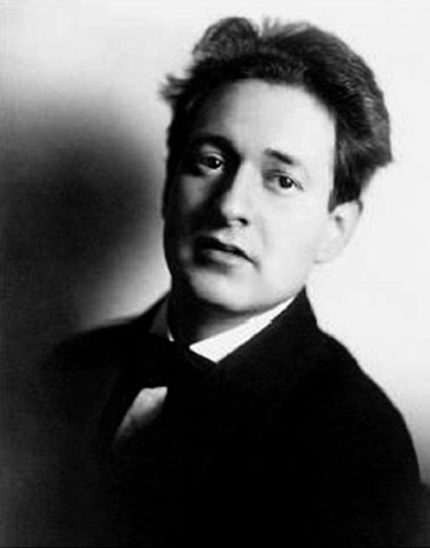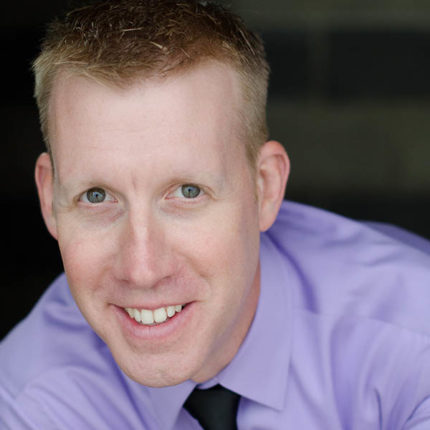Folks Operetta serves up a wide array of Korngold songs at UC festival

The University of Chicago’s “Korngold Rediscovered” festival began in a curious fashion, with a superb violin recital featuring precious little Korngold.
The second concert of the retrospective made up for this in spades. Saturday night’s program at the Logan Center Penthouse was devoted entirely to the composer’s vocal music. The artists of Folks Operetta—a local company whose mission is the restoration and performance of neglected German and Viennese light opera—curated an engaging program that drew from a variety of periods and genres of the composer’s life, though the musical results were inconsistent.
The standout performer was baritone Matthew Carroll, who offered two early Korngold cycles: So Gott und Papa Will (What God and Papa Will Allow) from 1911, and Sechs einfache Lieder (Six Simple Songs) from 1916, both written in the composer’s teens. The former sets 13 brief poems by Joseph von Eichendorff (1788-1857), which as a whole evoke an untroubled spirit of outdoor reflection and nostalgia; the latter sets three further Eichendorff poems in this same vein, and one each by Elisabeth Honold, Heinrich Kipper, and Siegfried Trebitsch.

Carroll’s warm, rich baritone was seamlessly even across registers, with easy force at suitable moments and sensitive inflections attuned to the German text. The adolescent Korngold wrote in an inviting, neo-Romantic idiom, in which one can hear adumbrations of his later cinematic style. Doing both cycles ran the risk of gilding the lily, as the nineteen songs began to sound rather similar after a while, but Carroll’s superb singing averted any risk of repetitiousness. He was accompanied sensitively by Anatoliy Tochinskiy, who supported his colleague’s phrasing, but sounded insecure in more technically demanding passages.
Another cycle, Lieder des Abschieds (Songs of Farewell) from 1921, was given by soprano Katherine Peterson, who will sing the role of Margot when Folks Operetta gives the American premiere of Korngold’s Die Kathrin later this week. This set struck a more somber chord, with texts from Georgina Rosetti, Edith Ronsperger, and Ernst Lothar that convey the spectrum of moods that may accompany leave-taking. Korngold’s harmonic language was also more varied and sophisticated here than in his earliest efforts.
Peterson possesses a lithe soprano well suited to this art song repertoire, but could sound pale in the upper register and at softer dynamics. She conveyed a feeling of bitter loss in “Dies eine kann mein Sehnen nimmer fassen” and a more peaceful, bittersweet adieu in Gefaßter Abschied, with Tochinskiy again a simpatico partner.
These song cycles were the most effective selections of the evening, the rest of which was given to arrangements for singers, string quartet, and piano of excerpts from Korngold’s film, musical comedy, and liturgical output. The string quartet fielded for the occasion struggled with intonation and ensemble issues throughout, which hamstrung the performances.
Tenor Gerald Franzen, artistic director and co-founder of Folks Operetta with his wife, soprano Alison Kelly, gave a genial introduction to this other, more well-known side of Korngold’s output. He and Kelly made a campy pair in the duet “Darling, you’re dancing just like my wife!” from 1908’s The Divorcee, though one was left wondering if something might have been lost performing the excerpt in English translation. Peterson was back on hand for “Irina’s Song” from Roses from Florida, a moving, Puccini-esque aria that the quartet’s maladroit playing kept decidedly earthbound.
Baritone Willian Roberts made his single contribution in “The Dressmaker’s Song” from The Silent Serenade, giving a glimpse of the mature Korngold working in 1950, and singing with a robust, well-projected tone. (Roberts will be featured more prominently in Die Kathrin.) Kelly’s light, nimble soprano closed the evening with the “Song of Happiness” from the same musical comedy, and “Tomorrow” from the film, The Constant Nymph.
Also performed was Korngold’s 1941 Prayer, Op. 32, written in exile in Los Angeles. Franzen projected the Hebrew and English text with an emphatic, spiritual assertion. The performance was conducted by his and Kelly’s young daughter, Clara, and also featured a supporting women’s chorus. Franzen emphasized in comments how quickly the chorus and music were arranged, which was frankly apparent.
“Korngold Rediscovered” continues April 6 with a symposium concert by the New Budapest Orpheum Society, featuring songs from Jewish film and stage music. korngoldfestival.org
Posted in Performances




